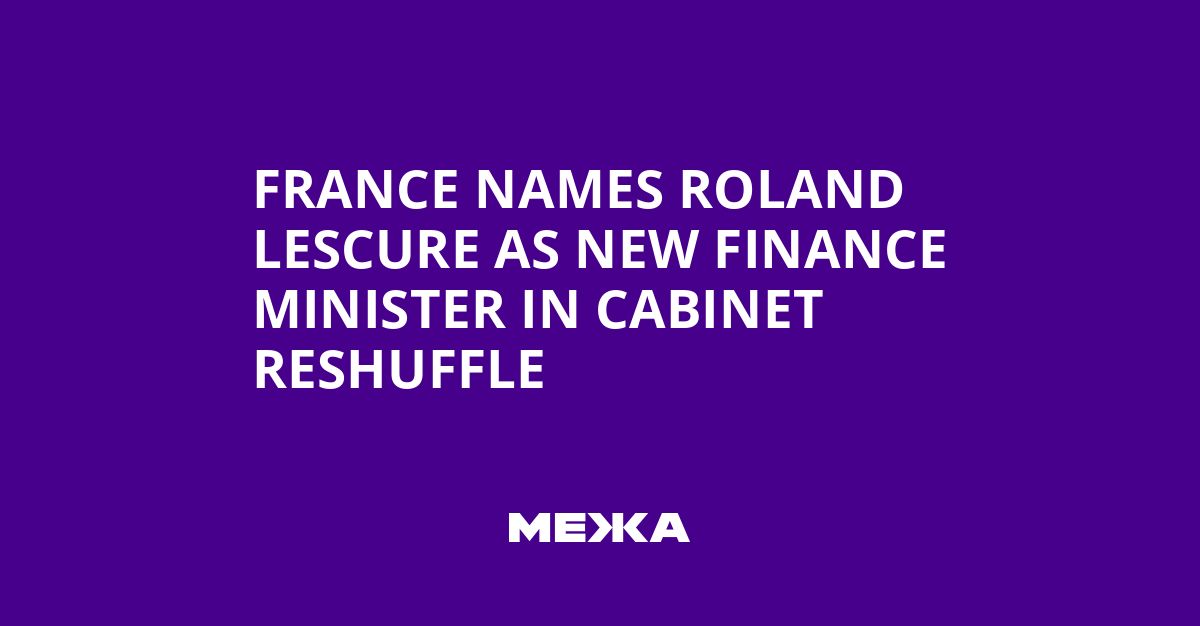In Paris, Prime Minister Sébastien Lecornu named Roland Lescure as his new finance minister in the reshuffled cabinet, where a number of senior officials from the previous government had kept their posts.
Lescure, who quickly became Macron’s anchor already during his first campaign in 2017, had previously been in the ranks of the Socialist Party. His appointment is seen as a gesture to the left flank ahead of further multiparty negotiations on the budget and economic policy.
Budget talks are growing more tense and require delicate compromises among the three opposition blocs – the Macronist ruling centrist minority, the far-right, and the left.
This is the Bayrou government without Bayrou, and it will implement the same policies.
– Éric Coquerel, a left-wing deputy, said on BFM TV
Two of Lescure’s predecessors, François Bayrou and Michel Barnier, were moved from the government by Parliament as part of efforts to curb public spending amid a rising deficit that is drawing attention from ratings agencies and investors in the eurozone.
The choice of such a uniform government, filled with people who bankrupted France, is pathetic.
– Marine Le Pen, leader of the far-right party
Some key ministers remained in their posts, notably in the Foreign Ministry and other portfolios, underscoring the retention of part of the previous government’s experience during the cabinet reshuffle.
The 58-year-old Lescure will face a difficult balancing act between seeking the support of the socialists, preserving Macron’s pro-business legacy, and ensuring the loyalty of conservatives and liberals.
Moreover, he must take into account the financial sensitivities of the far-right, who have not hesitated to push for new steps that could undermine the government’s stability.
In aiming to win socialist support, Lescure proposed wealth taxation long urged by the left, while also limiting entrepreneurs’ assets to protect companies and jobs. He also rejected using special constitutional powers to push the budget through Parliament without a vote.
Sensational Highlights and Future Steps
This move signals deeper involvement of the left spectrum in running the country on financial matters, while also trying to preserve the business-oriented component of the presidential majority. Analysts expect Lescure to balance between a push for social justice and backing investments needed for growth and budget stability.
Given fiscal discipline and the need for new revenue sources, experts forecast that the ministry of finance’s coming steps will focus on modest taxes on the rich and on streamlining spending to prevent the deficit from rising and to safeguard the country’s investment climate.
